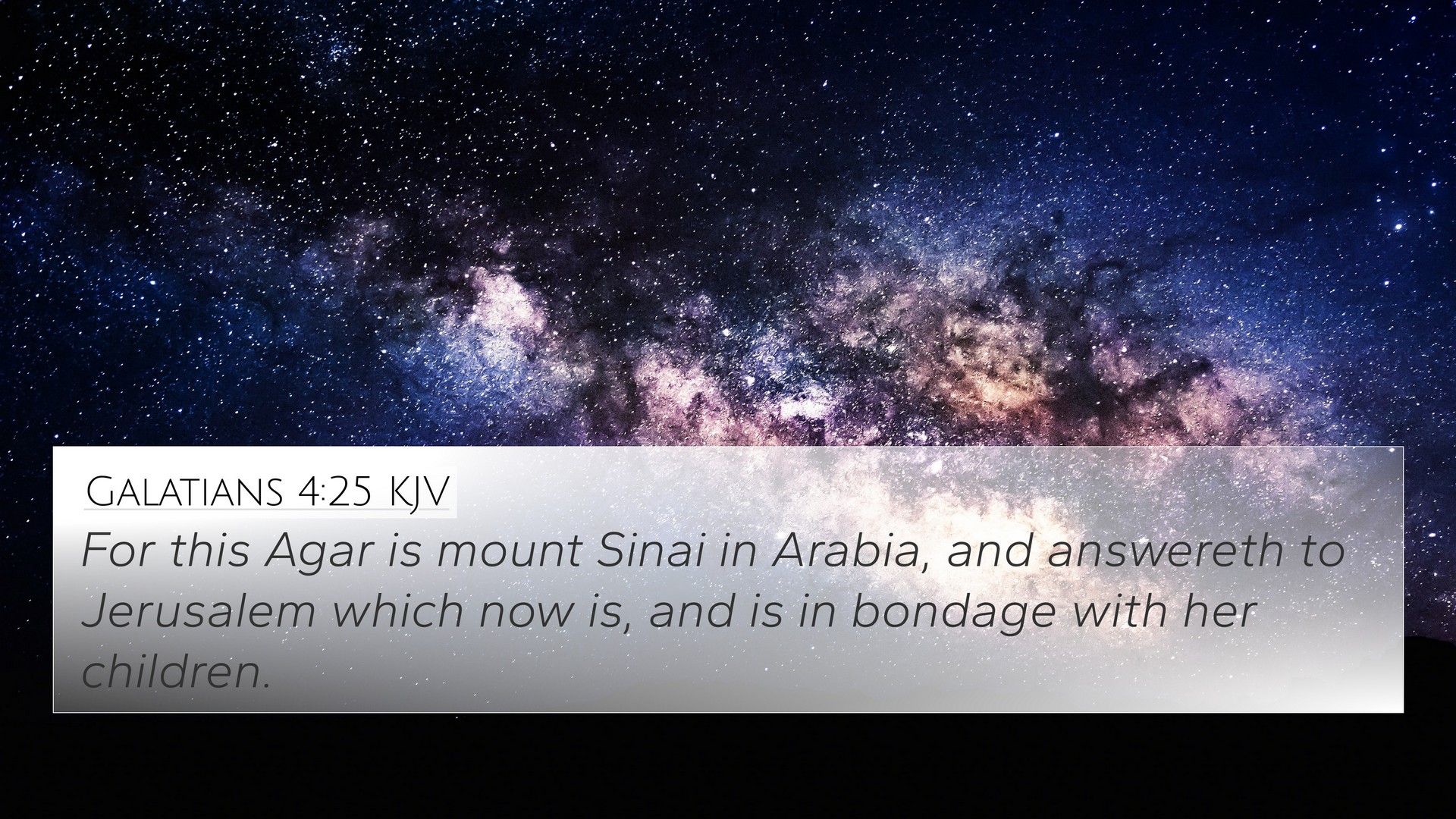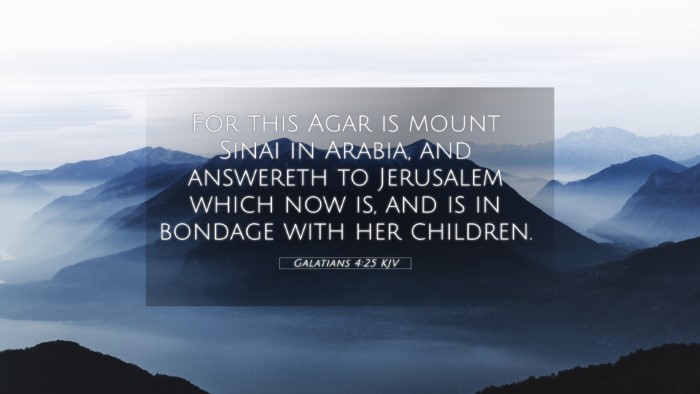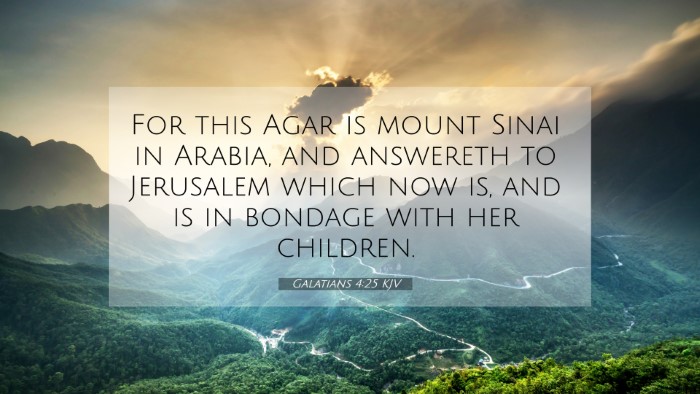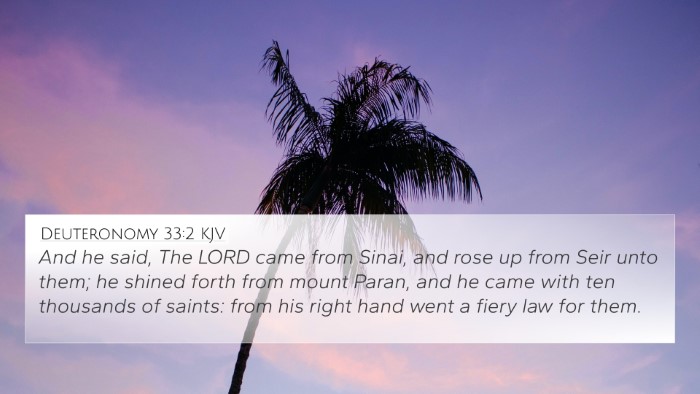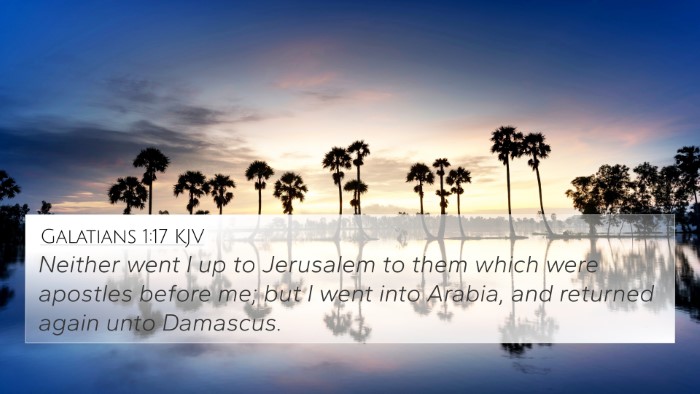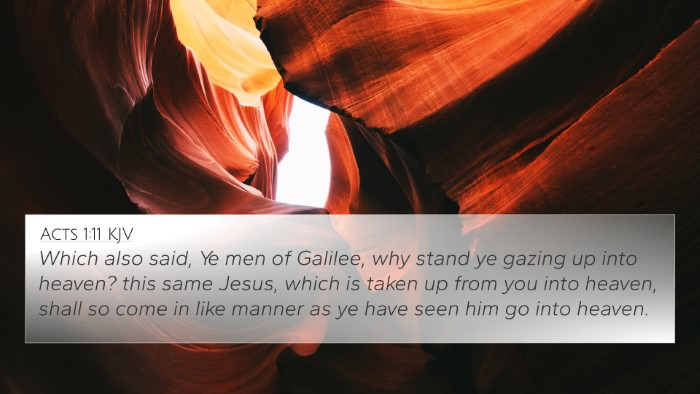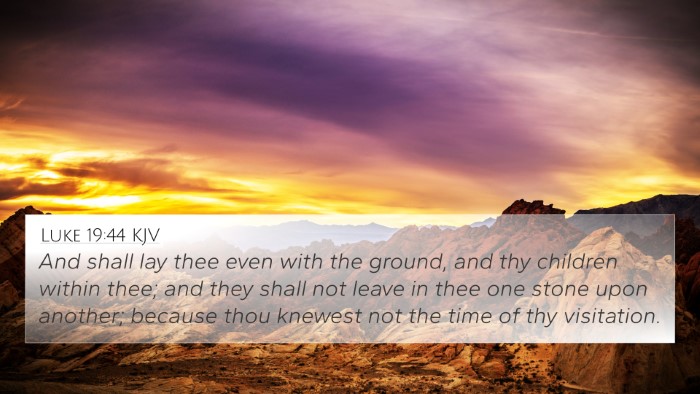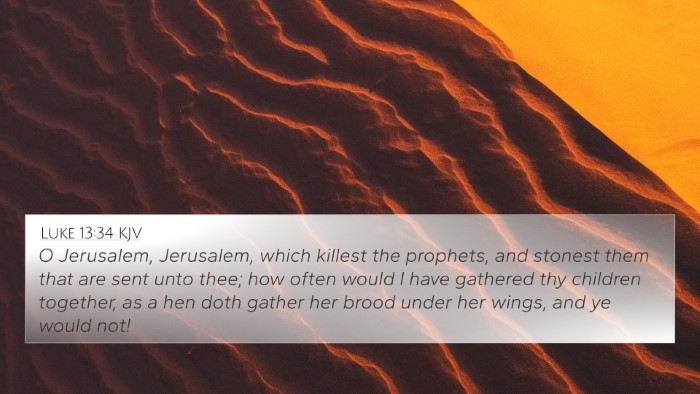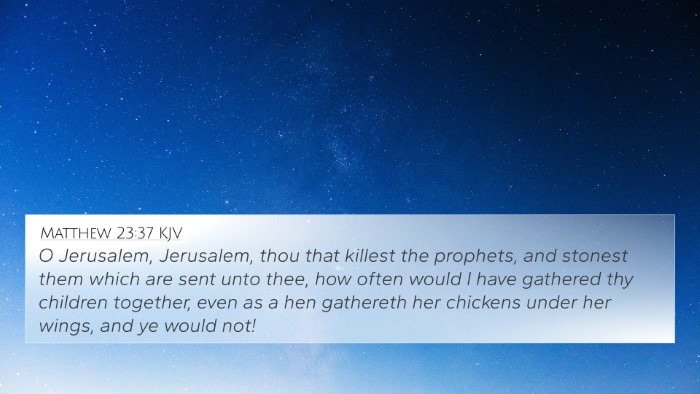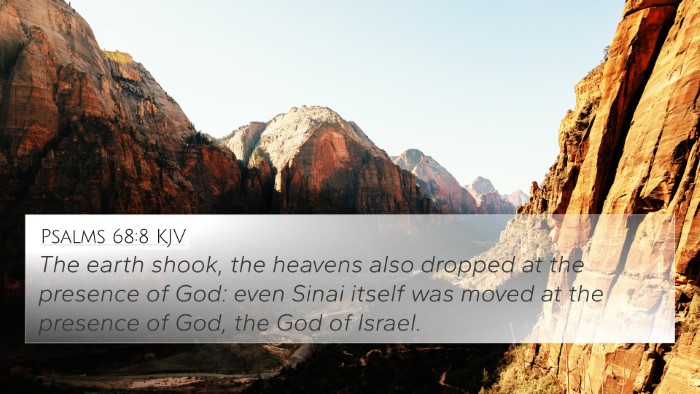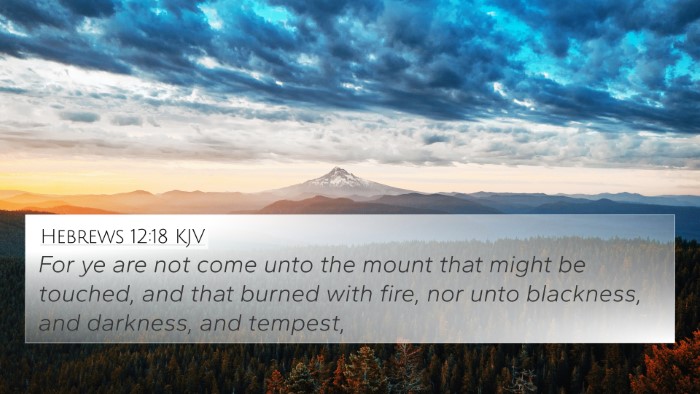Understanding Galatians 4:25
Galatians 4:25 states: "For this Agar is mount Sinai in Arabia, and answereth to Jerusalem which now is, and is in bondage with her children." This verse is part of a larger argument the Apostle Paul is making regarding the contrast between the Old Covenant and the New Covenant.
Summary of Commentary Insights
This verse draws upon the allegory presented by Paul concerning Hagar and Sarah, which is crucial for understanding the theological implications concerning law and grace.
Key Themes Explored:
- The Allegory of Hagar and Sarah: Paul identifies Hagar with the Old Covenant, representing the law given at Sinai, which leads to bondage.
- Contrast Between Two Jerusalems: The verse presents a dichotomy between the earthly Jerusalem, which symbolizes a life under the law and its restrictions, and the heavenly Jerusalem, representing freedom through faith in Christ.
- The Principle of Freedom vs. Bondage: The message asserts that those who seek righteousness through the law find themselves in spiritual bondage, in contrast to those who embrace grace through faith.
Comparative Bible Verse Analysis
To fully understand the implications of Galatians 4:25, we can look at several related verses:
- Genesis 21:10-12: Discusses the expulsion of Hagar and Ishmael, reflecting the tension between the children of the promise and those of the flesh.
- Hebrews 12:22: Describes the heavenly Jerusalem, providing a picture of the ultimate freedom found in Christ.
- Romans 8:15: Talks about receiving the Spirit of adoption, which allows believers to move from bondage into freedom.
- Galatians 4:26: Directly follows this verse, emphasizing the contrast between the two covenants and further explaining the freedom that comes from the New Covenant.
- 2 Corinthians 3:6-9: Discusses the ministry of the Spirit versus the ministry of death (the law), reinforcing Paul's arguments.
- John 8:32: "And you will know the truth, and the truth will set you free," which aligns with the theme of freedom found in faith.
- Galatians 5:1: Proclaims the freedom that Christ has provided and urges believers not to return to a yoke of bondage.
- James 1:25: Refers to the perfect law of liberty, in contrast to the law that Hagar represents.
- Philippians 3:3: Speaks of worshiping God in the Spirit and exulting in Christ Jesus, highlighting the importance of spiritual over ritual.
- Acts 15:10: Addresses the burden of the law placed upon believers, paralleling the bondage discussed in Galatians.
Connecting Themes and Insights
The connections between these verses and Galatians 4:25 allow for a deeper understanding of the pitfalls of relying on the law for salvation versus the freedom offered through Christ. Paul uses these connections to argue for a faith that is liberating rather than enslaving.
Tools for Bible Cross-Referencing
To explore the connections thoroughly, one may utilize various bible cross-reference tools, such as:
- Bible concordance: A comprehensive tool for identifying themes and verses related to specific terms.
- Bible cross-reference guide: Facilitates deep dives into scriptural cross-referencing by highlighting inter-Biblical dialogues.
- Bible chain references: Links verses in a thematic chain, allowing for easy exploration of related scriptures.
- Bible cross-reference system: A structured approach to understanding how various verses interact and support one another.
How to Use Bible Cross-References
By understanding how to find cross-references in the Bible, readers can enrich their study and grasp the cohesive nature of Biblical teaching. This involves:
- Identifying connections between the Old and New Testament through shared themes (such as bondage vs. freedom).
- Contextual readings of scripture to uncover narrative links between characters and concepts.
- Engaging with commentaries that provide historical and theological context to verses.
Conclusion
In conclusion, Galatians 4:25 serves as a vital passage for understanding the transition from law to grace in the Christian faith. Through careful analysis and the use of cross-referencing methods, believers can gain profound insight into the transformative power of faith and the freedom offered through Christ. By linking Bible scriptures and understanding their connections, one can enrich their spiritual journey.
